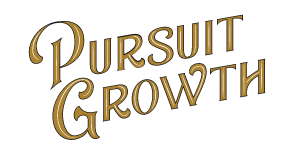Do you notice that as we grow older, the number of problems facing our families, friends, and the people we care about in our communities increases day by day? Or perhaps it just seems that way.
There was a time in my past where I found myself deeply disheartened and frustrated that my attempts to provide helpful solutions to other people’s problems were often rejected or ignored. In many cases the destructive habits and mental anguish I saw causing harm in their lives were due to their specific choices and mental perspective, which they had the ability to change. In my belief, the solutions to their problems seemed so simple to overcome; however, I needed to grow in my understanding that human mindset and behavior is a very comprehensive science based on a variety of complicated mental variables out of my control and knowledge. Often the best of my intentions had little effect to create positive impact, especially when the individual was truly unwilling to change.
A passage from one of my favorite books, “A River Runs Through It,” by Norman Maclean, helped me change my perspective on frustrating circumstances when the solutions I attempted to provide were not accepted or applied by the people I intended to serve.
“Each one of us here today will at one time in our lives look upon a loved one who is in need and ask the same question: We are willing to help, Lord, but what, if anything, is needed? For it is true we can seldom help those closest to us. Either we don’t know what part of ourselves to give, or, more often than not, the part we have to give is not wanted. And so it is those we live with and should know who elude us. But we can still love them – we can love completely without complete understanding.”
I have learned a powerful life lesson, through many trials and errors, that it’s not my responsibility to “own” other people’s problems. It is my responsibility to love. Unconditional love is the highest form of love, it embraces a universal love that transcends and persists regardless of circumstance. It is generally assumed to mean moral goodwill which proceeds from esteem, principle, or duty, rather than attraction or charm.
Today, instead of continuously trying to solve other people’s problems for them, I can instead apply the answer the question, “How can I best love this person?” The answer to this question has many possible outcomes. Sometimes it includes service, sometimes it includes gentleness, sometimes it includes rebuking, sometimes it includes discipline, sometimes it includes questions, sometimes it includes instructions, sometimes it includes actions, sometimes it includes giving space, sometimes it includes listening, sometimes it includes prayer, but most often it just includes letting them know I care and understand they have a difficult circumstance to overcome.
I must give myself peace of mind by knowing their outcomes do not belong to me, no matter how bad the result. My role to “own” is not to solve their problem. My role to “own” is to identify how to love and serve.
Live The Pursuit of Growth





